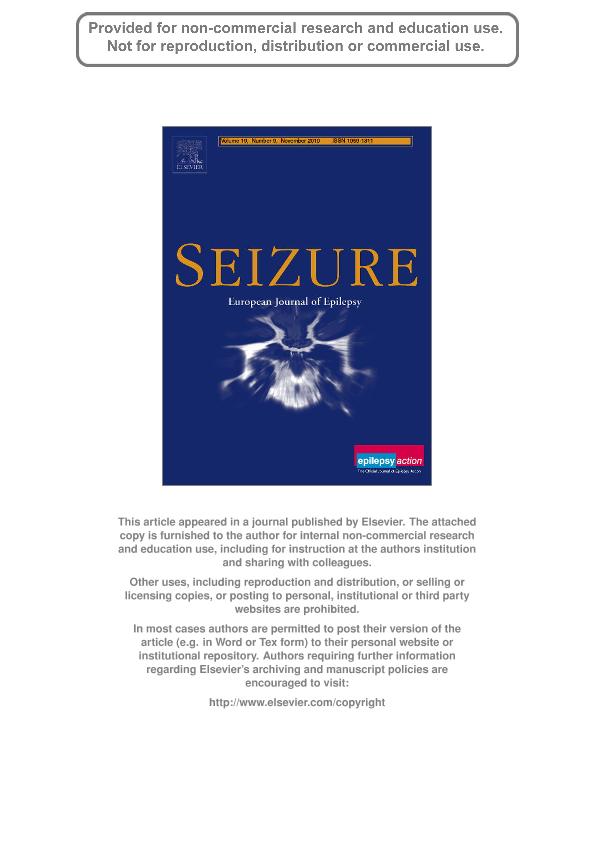Artículo
Doublecortin (DCX) immunoreactivity in hippocampus of chronic refractory temporal lobe epilepsy patients with hippocampal sclerosis
D`Alessio, Luciana ; Konopka, Hector; Lopez, Ester Maria
; Konopka, Hector; Lopez, Ester Maria ; Seoane, Eduardo; Consalvo, Damian; Oddo, Silvia Andrea
; Seoane, Eduardo; Consalvo, Damian; Oddo, Silvia Andrea ; Kochen, Sara Silvia
; Kochen, Sara Silvia ; López, Juan José
; López, Juan José
 ; Konopka, Hector; Lopez, Ester Maria
; Konopka, Hector; Lopez, Ester Maria ; Seoane, Eduardo; Consalvo, Damian; Oddo, Silvia Andrea
; Seoane, Eduardo; Consalvo, Damian; Oddo, Silvia Andrea ; Kochen, Sara Silvia
; Kochen, Sara Silvia ; López, Juan José
; López, Juan José
Fecha de publicación:
11/2010
Editorial:
Elsevier
Revista:
Seizure : The Journal Of The British Epilepsy Association
ISSN:
1059-1311
Idioma:
Inglés
Tipo de recurso:
Artículo publicado
Clasificación temática:
Resumen
Introduction: Status epilepticus increases the production of new neurons (hippocampal neurogenesis) and promotes aberrant migration. However chronic experimental models of epilepsy and studies performed in human epilepsy showed controversial results suggesting a reduction in hippocampal neurogenesis in late stages of the disease. Doublecortin (DCX) has been validated to determine alterations in the production of new neurons in the human hippocampus. Objectives: Determine DCX expression in human hippocampal sclerosis (HS) from patients who underwent epilepsy surgery for refractory temporal lobe epilepsy (TLE). Methods: Hippocampal sections of 9 patients with HS and TLE who underwent surgery, were processed using immunoperoxidase for DCX. Archival material from 5 normal post-mortem hippocampus were simultaneously processed. Results: Significantly lower staining intensity was observed in DCX-positive neurons localized in dentate gyrus (DG) and in CA1 of epileptic hippocampus; lower DCX reactive area was observed in pyramidal layers of CA1; and a reduced in the mean number of DCX-positive neurons were determined in DG compared to normal hippocampus (p < 0.05). Conclusions: This study found a decrease in DCX expression in hippocampus of patients with HS and chronic and refractory TLE suggesting alterations in NG and hippocampal synaptogenesis with potential cognitive and emotional repercussion.
Archivos asociados
Licencia
Identificadores
Colecciones
Articulos(IBCN)
Articulos de INST.DE BIOLO.CEL.Y NEURCS."PROF.E.DE ROBERTIS"
Articulos de INST.DE BIOLO.CEL.Y NEURCS."PROF.E.DE ROBERTIS"
Citación
D`Alessio, Luciana; Konopka, Hector; Lopez, Ester Maria; Seoane, Eduardo; Consalvo, Damian; et al.; Doublecortin (DCX) immunoreactivity in hippocampus of chronic refractory temporal lobe epilepsy patients with hippocampal sclerosis; Elsevier; Seizure : The Journal Of The British Epilepsy Association; 19; 9; 11-2010; 567-572
Compartir
Altmétricas



